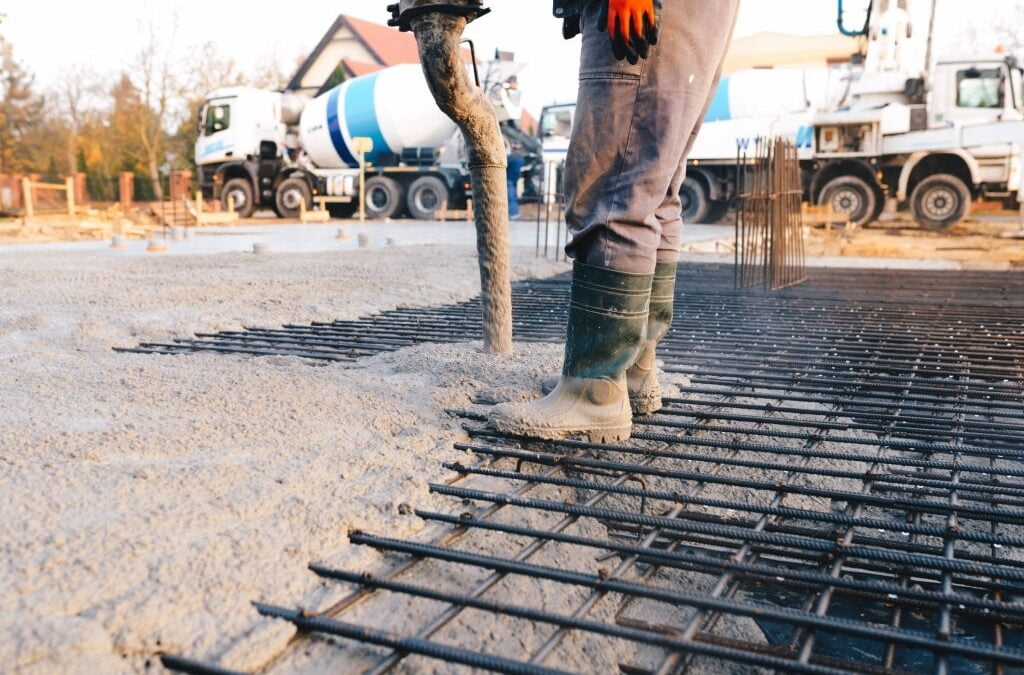When working with concrete, it’s imperative to ensure that it dries properly to avoid any potential structural issues. However, determining the precise time required for proper drying can be challenging due to several factors impacting the process. Considering these variables is crucial to ensure that the concrete dries adequately and has a stable structure.
Factors Affecting Concrete Drying Time
If you’re curious why your concrete is taking longer than expected to dry, various factors could contribute to the delay. One of the main factors is the weather—extreme temperatures, whether too hot or too cold, can impact the concrete drying time. Hot weather can cause the water in the concrete to evaporate too fast, resulting in cracks. On the other hand, if the temperature is too cold, the concrete may freeze and take longer to dry.
Another factor that affects the drying time of concrete is the mix of the concrete. If there is too much water in the mix, it can take longer to dry. This is because the excess water needs to evaporate before the concrete can dry. Similarly, the concrete can dry too quickly and become brittle if there isn’t enough water. The mix should be right – not too wet and not too dry – for optimal drying time. By considering these factors, you can ensure that your concrete dries in a timely manner.
Weather Conditions and Their Impact on Drying Time
Weather conditions play a crucial role in the drying process of concrete, affecting its strength and durability. The ideal weather conditions for concrete to dry are when the temperature ranges between 50-90°F (10-32°C) and the relative humidity is below 60%. If the temperature is too low, the concrete will take longer to dry, and if it’s too high, the concrete will dry too quickly, which could lead to cracks and shrinkage.
Another weather factor to consider is wind. Wind can increase the evaporation rate, which can cause the surface of the concrete to dry too quickly. This can lead to surface cracks and reduce the strength of the concrete. In addition, rain or high humidity can delay the drying process by slowing down the rate of evaporation. It’s important to monitor the weather conditions during the drying process and take appropriate measures to protect the concrete from adverse weather conditions. Overall, weather conditions are a crucial factor in the drying process of concrete and should be carefully considered to ensure the concrete dries properly and retains its durability and strength.
Tips for Ensuring Proper and Efficient Concrete Drying
You should follow these helpful tips to ensure proper and efficient structure drying. First, you need to make sure that the concrete is properly mixed. Ensure that you use the right amount of water and that the mixture is evenly distributed. Proper mixing ensures that the concrete dries uniformly, which prevents cracking and other defects.
To ensure the strength and durability of your concrete structure, it is important to cure it properly. This involves keeping the concrete moist to allow it to harden and strengthen. Cure the concrete for the recommended amount of time to achieve maximum strength. You can cover it with plastic or damp burlap to keep it wet. Also, refrain from walking or driving on the concrete until fully cured.
Following these tips ensures that your concrete dries properly and efficiently, resulting in a strong structure.
Experienced Concrete Contractors
When it comes to concrete projects, proper drying and curing are crucial for ensuring strength, durability, and longevity. Our concrete company has the expertise to guide you through the entire concrete process, from mixing the right concrete blend to overseeing the drying and curing stages. Our experienced concrete contractors can help you understand the factors affecting concrete drying time and provide tailored solutions to ensure your concrete dries efficiently and achieves maximum strength. Contact Gatlinbyrd Cement today to learn more about our comprehensive concrete services and how we can help with your next concrete project.
Contact Us Now
Frequently Asked Questions
What is the standard drying time for concrete?
Concrete typically takes about 28 days to cure fully. However, the initial setting time, where the surface becomes hard to the touch, can occur within 24 to 48 hours.
Can concrete dry too quickly, and what are the consequences?
Yes, if concrete dries too quickly, it can lead to surface cracks and decreased strength. Rapid drying usually occurs in hot, windy conditions.
What is the optimal temperature for concrete to dry?
The ideal temperature range for concrete to cure is between 50°F and 90°F (10°C to 32°C).
How much water should be in the concrete mix to optimize drying?
The water-to-cement ratio should ideally be around 0.45 to 0.50. Excessive water can extend drying times and weaken the concrete, while too little water can cause it to dry too quickly and become brittle.
What is concrete curing, and why is it important?
Curing is the process of maintaining adequate moisture in concrete for a certain period, essential for achieving optimal strength and durability. Proper curing helps prevent cracks, shrinkage, and surface discoloration.
When is it safe to walk or drive on new concrete?
It's safe to walk on concrete after about 24-48 hours and drive on it after about seven days, although full curing takes about 28 days.
Can I speed up the concrete drying process?
While accelerating admixtures can be added to the concrete mix to speed up the hardening process, it’s generally better to allow concrete to cure naturally to ensure maximum strength and durability.

